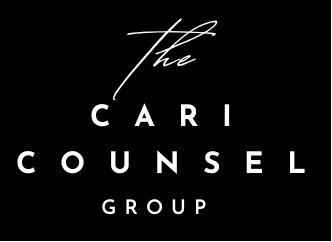Best Antitrust Lawyers in Trinidad and Tobago
Share your needs with us, get contacted by law firms.
Free. Takes 2 min.
Or refine your search by selecting a city:
List of the best lawyers in Trinidad and Tobago
About Antitrust Law in Trinidad and Tobago
Antitrust law in Trinidad and Tobago is designed to promote fair competition and protect consumers from anti-competitive practices. It aims to prevent monopolies, price-fixing, and other practices that may harm the economy.
Why You May Need a Lawyer
You may need a lawyer in antitrust cases if you suspect that your rights as a consumer or competitor are being violated. A lawyer can provide legal advice, represent you in court, and help you navigate the complex legal system.
Local Laws Overview
In Trinidad and Tobago, the main legislation governing antitrust is the Competition Act. This Act prohibits anti-competitive agreements, abuse of dominance, and mergers that substantially lessen competition. The Trinidad and Tobago Fair Trading Commission is responsible for enforcing these laws.
Frequently Asked Questions
1. What is considered anti-competitive behavior in Trinidad and Tobago?
Anti-competitive behavior includes agreements between competitors to fix prices, allocate markets, or rig bids. It also includes abusing a dominant position in the market.
2. Can individuals file a complaint with the Fair Trading Commission?
Yes, individuals can file complaints with the Fair Trading Commission if they have evidence of anti-competitive behavior that violates the Competition Act.
3. How are mergers regulated in Trinidad and Tobago?
Mergers that may substantially lessen competition are subject to review by the Fair Trading Commission. The Commission may approve the merger with conditions or block it if it is found to be anti-competitive.
4. What are the penalties for violating antitrust laws in Trinidad and Tobago?
Penalties for violating antitrust laws in Trinidad and Tobago can include fines, injunctions, and other remedies. Individuals and companies found guilty of anti-competitive behavior may face significant financial penalties.
5. How long does it take for the Fair Trading Commission to investigate a complaint?
The length of time it takes for the Fair Trading Commission to investigate a complaint can vary depending on the complexity of the case. It is important to be patient and cooperate with the Commission during the investigation process.
6. Can I seek damages for antitrust violations in Trinidad and Tobago?
Yes, individuals and companies that have been harmed by antitrust violations in Trinidad and Tobago can seek damages through the courts. A lawyer can help you navigate the legal process and pursue compensation for any harm suffered.
7. Are there any exemptions to the antitrust laws in Trinidad and Tobago?
There are limited exemptions to the antitrust laws in Trinidad and Tobago for certain types of agreements that promote economic efficiency. However, these exemptions are narrowly interpreted, and it is important to seek legal advice if you are unsure about the legality of a particular agreement.
8. Can the Fair Trading Commission conduct dawn raids on companies suspected of antitrust violations?
Yes, the Fair Trading Commission has the power to conduct dawn raids on companies suspected of antitrust violations. During a dawn raid, the Commission may seize documents and electronic data to gather evidence of anti-competitive behavior.
9. Is there a leniency program for companies that cooperate with the Fair Trading Commission in antitrust investigations?
Yes, there is a leniency program in Trinidad and Tobago for companies that cooperate with the Fair Trading Commission in antitrust investigations. Companies that come forward with information about anti-competitive behavior may receive reduced penalties or immunity from prosecution.
10. How can I stay informed about antitrust developments in Trinidad and Tobago?
You can stay informed about antitrust developments in Trinidad and Tobago by following the Fair Trading Commission's website, attending industry conferences, and seeking legal advice from antitrust experts. It is important to stay informed about changes in the law that may affect your business.
Additional Resources
For more information about antitrust law in Trinidad and Tobago, you can visit the website of the Fair Trading Commission or seek advice from a qualified antitrust lawyer. It is essential to stay informed about your rights and obligations under the Competition Act to ensure compliance with the law.
Next Steps
If you believe that your rights under the Competition Act have been violated, it is essential to seek legal advice as soon as possible. A lawyer with experience in antitrust law can help you understand your rights, gather evidence, and advocate on your behalf before the Fair Trading Commission or the courts.
Lawzana helps you find the best lawyers and law firms in Trinidad and Tobago through a curated and pre-screened list of qualified legal professionals. Our platform offers rankings and detailed profiles of attorneys and law firms, allowing you to compare based on practice areas, including Antitrust, experience, and client feedback.
Each profile includes a description of the firm's areas of practice, client reviews, team members and partners, year of establishment, spoken languages, office locations, contact information, social media presence, and any published articles or resources. Most firms on our platform speak English and are experienced in both local and international legal matters.
Get a quote from top-rated law firms in Trinidad and Tobago — quickly, securely, and without unnecessary hassle.
Disclaimer:
The information provided on this page is for general informational purposes only and does not constitute legal advice. While we strive to ensure the accuracy and relevance of the content, legal information may change over time, and interpretations of the law can vary. You should always consult with a qualified legal professional for advice specific to your situation.
We disclaim all liability for actions taken or not taken based on the content of this page. If you believe any information is incorrect or outdated, please contact us, and we will review and update it where appropriate.
Browse antitrust law firms by city in Trinidad and Tobago
Refine your search by selecting a city.












